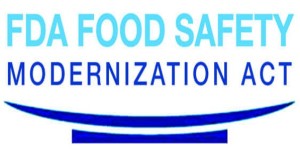When it comes to compliance you definitely want to be transparent when dealing with regulations. The key rules of the Food Safety Modernization Act (FSMA) went into effect on Sept 10, 2015. The main purpose of the new regulations is to alter the thinking of manufacturers from being reactive to one or proactive and preventing contamination in the first place.
What have you done to ensure your company is compliant?
Compliance Questions You Should Consider
- What have we already accomplished to prepare for FSMA?
- What are the hazards that could affect food manufactured, processed, packed, or held in our facility?
- Can we identify, document and monitor critical control points?
- How secure is our audit trail?
- Do we have a document management system for Certificate of Origin, Technical Sheets, or inventory signatures?
- Does our system quarantine items that fail inspection rules?
- Can we afford penalties or fines from a recall?
An ERP solution that has real-time visibility into production processes and automated traceability gives companies a competitive advantage with the ability to address issues while still in process. Manufacturers without these capabilities are often reduced to recreating situations and conducting root-cause analysis days after the events have occurred.
This was the last blog in the blog series 7 Steps to Transparency for Food and Beverage Manufacturers. If you missed the other blogs or infographic in this series covering topics such as: expiry dates, traceability, allergen tracking, lot tracking, business intelligence, recall and FSMA compliance.


